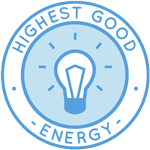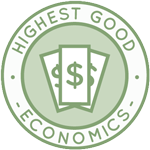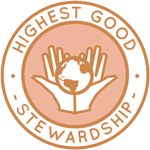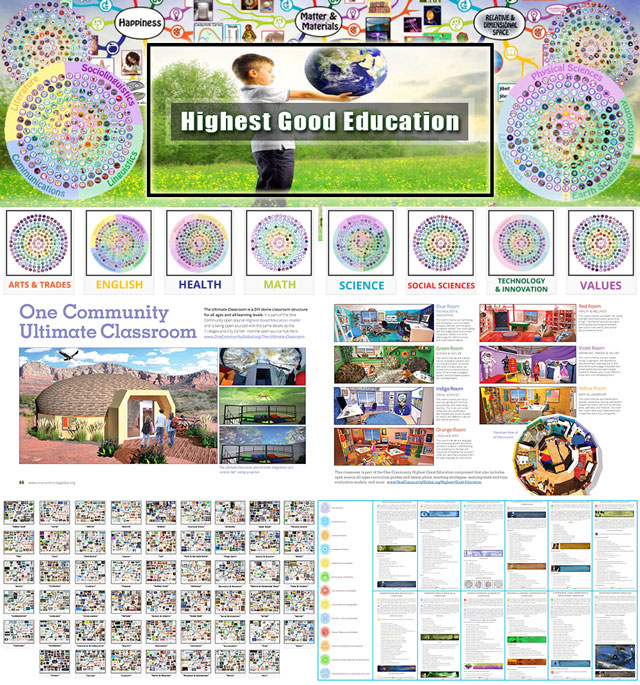Practical Highest Good – One Community Weekly Progress Update #427
Practical Highest Good approaches to the foundations of living are beneficial of all people and life on our planet. One Community is supporting this by creating open source and free shared “Highest Good” approaches to food, energy, housing, education, for-profit and non-profit economic design, social architecture, fulfilled living, global stewardship practices, and more. By demonstrating a comprehensively sustainable life as better than how most people are living right now, we seek to create a self-replicating sustainability model as a path to global sustainability.
- Here’s our project overview
- Here’s our world-change methodology
- Here’s how this becomes self-replicating
- Here’s how we are open source and free-sharing all the do-it-yourself designs

OUR MAIN OPEN SOURCE HUBS
Click on each icon to be taken to the corresponding Highest Good hub page.
One Community’s physical location will forward this movement as the first of many self-replicating teacher/demonstration communities, villages, and cities to be built around the world. This is the May 30th, 2021 edition (#427) of our weekly progress update detailing our team’s development and accomplishments:
Practical Highest Good
One Community Progress Update #427
DONATE | COLLABORATE | HELP WITH LARGE-SCALE FUNDING
CLICK HERE IF YOU’D LIKE TO RECEIVE AN EMAIL EACH WEEK WHEN WE RELEASE A NEW UPDATE
YOU CAN ALSO JOIN US THROUGH SOCIAL MEDIA
ONE COMMUNITY WEEKLY UPDATE DETAILS
PRACTICAL HIGHEST GOOD – HIGHEST GOOD HOUSING PROGRESS
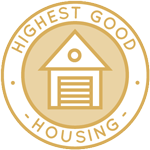 One Community is demonstrating practical highest good through Highest Good housing that is artistic and beautiful, more affordable, more space efficient, lasts longer, DIY buildable, and constructed with healthy and sustainable materials:
One Community is demonstrating practical highest good through Highest Good housing that is artistic and beautiful, more affordable, more space efficient, lasts longer, DIY buildable, and constructed with healthy and sustainable materials:
- Learn about: Our Upcoming Crowdfunding Campaign
- Learn about the different village models: 7 Sustainable Village Models
- Visit the open source portals for the first two: Earthbag Village OS Hub | Straw Bale Village OS Hub
This week the core team completed our 2nd-to-last review and feedback round on the Earthbag Village Construction of the Footer, Foundation, and Flooring doc. The focus was mainly on regarding strip placement of wing insulation. This tutorial is now about 99% complete behind-the-scenes.
The same team member then proceeded proofreading Sustainable Roadways, Walkways, and Landscaping tutorial, going through page 7 and posing questions for further clarification of the aggregate mix treatment for the surface asphalt layer.
The core team additionally continued the final publishing of the Earthbag Village Dome Home Loft Engineering page. We updated the page with all the updated images, transformed the updated tables into images, and addressed some other images that had to be edited on top of the standard resizing and optimization before publishing them on the web page.
We also added the metadata on all the images. This page is done now except for the final read through and creating of a new header image.
The core team additionally continued double checking the Earthbag Village energy specifics for the solar microgrid design, sizing, and cost analysis. We added more specifics for the electrical demands, working more on identifying all the energy consuming components within the village. We’d say this evaluation/estimation task is now about 80% complete.
Jose Luis Flores (Mechanical Engineer) completed his 44th week helping finish the Net-zero Bathroom component of the Earthbag Village. This week Jose Luis continued his analysis of the maximum rain catchment area when an external support column is used.
He continued his analysis and first determined a geometric relationship between the distance of the external column to the outer structure wall and the height of the column. This was feasible due to the slope of the roof being constant, making the height and length proportional.
A constraint was then made by stating that the center of gravity or half the length of the radial beam would not surpass 80% of the distance from the origin to the column to avoid tipping. Jose Luis then made a free body diagram and equations of equilibrium to have a relationship between the distance between the center of gravity and the structure’s reaction force vs the reaction force at the column.
The reaction force on the column was isolated by using the maximum distance parameter, the maximum weight the structure can withstand, and relating it to the column’s length to simplify the equation. The length of the radial beam can be calculated by using the chosen length of the column.
With the length the reaction force can be verified by using the buckling equation and the equation derived from the spreadsheet relating weight to radial beam length. These findings will be added to another spreadsheet to calculate the maximum rain catchment area of the Net-Zero Bathroom’s exterior roof. The pictures below show some of this work.
Stacey Maillet (Graphic Designer) completed her 40th week working on the final edits and revisions to the Murphy bed instructions. This week Stacy focused on making changes to part w31a and w31b by changing the board and reworking the cutting map to fit those parts in. She added more cutting instructions for all boards in the wall section and the measurements for all boards split into two pieces.
Stacey also updated the board color coding system and the procurement list based on these changes. The new added wood to the structure is making the structure more secure and sound. Screenshots below are related to this latest progress.
Hannah Copeman (Structural Engineer) completed her 38th week helping complete all the Earthbag Village tutorials. This week Hannah continued the development of the Earthbag Village dome construction by continuing work on the Footer, Foundation and Flooring tutorial.
She went through the FFF doc to resolve any outstanding comments and updated/added content for topics that needed further elaboration, such as how to calculate the width increase between the foundation and footer by using a trigonometric principle. Hannah also researched the compressive strength of aircrete in relation to its variable density.
You can see some pictures of this work below.
Vicente J Subiela (Project Management Adviser) completed his 19th week working on the solar microgrid design, sizing, and cost analysis specifics. This past week, Vicente focused on the supervision of Jeson and Luis’ tasks, reviewing draft reports, indicating suggestions to improve the texts and solving questions.
He completed the revision of the solar hardware and solar rates reports. Vicente additionally updated the solar schedule plan to have a one year view, and started to supervise and review the work by Katherine, a new member of the team.

Practical Highest Good ” Solar Microgrid Design, Sizing, and Cost Analysis Specifics ” Click for Page
Jeson Hu (Aerospace Engineer) completed his 13th week helping with research related to the solar microgrid design, sizing, and cost analysis specifics. This week, Jeson created and started developing the diesel generator spreadsheet. He determined the necessary data to be included in the spreadsheet and used the same format as the previous spreadsheets.
Other than starting the diesel generator product research, he primarily focused on responding to the comments input from other reviewers. He added more information on sections that were too short and reconstructed the recycling section with more detail. Jeson also fixed some format errors and added appendix and resource sections with backup resource web page PDFs.
The pictures below share some of this developing work.
Dan Alleck (Designer and Illustrator) continued helping with 3D render work, completing his 4th week as a volunteer now helping with the Earthbag Village 4-dome cluster renders. This week he finished the final sky, plant, and people edits needed to complete the render shown below.

Practical Highest Good ” Sky, Plant, and People Edits of the Earthbag Village 4-dome Cluster Renders
And Katherine Cao (Chemical Engineer) joined the team and completed her 1st week working on the grid-tie connection details for our solar microgrid designs. This week Katherine reviewed the solar reports written by other One Community team members to learn about the work already done and the format desired.
She then began the research on grid-tie systems, PV field connect-to-grid, etc. and started writing the report. Pictures below are related to this work.
PRACTICAL HIGHEST GOOD – DUPLICABLE CITY CENTER PROGRESS
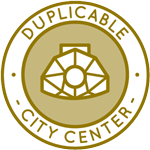 One Community is demonstrating practical highest good through a Duplicable and Sustainable City Center that is LEED Platinum certified/Sustainable, can feed 200 people at a time, provide laundry for over 300 people, is beautiful, spacious, and saves resources, money, and space:
One Community is demonstrating practical highest good through a Duplicable and Sustainable City Center that is LEED Platinum certified/Sustainable, can feed 200 people at a time, provide laundry for over 300 people, is beautiful, spacious, and saves resources, money, and space:
- Learn about this building and it’s function: Duplicable City Center Open Source Hub
This week Ksenia Akimov (Plumbing Engineer) completed her 31st week working on the Duplicable City Center plumbing designs. This week Ksenia calculated the hot water flow rate for the kitchen according to the Guidelines for Sizing Water Heaters, California Conference of Directors of Environmental Health.
Her results showed a need for 2 working heaters of 268 gallons per hour each. This seems high for the kitchen and will need to be double checked. Pictures below are related to this work.
David Na (Project Management Adviser/Engineer) completed his 14th week helping with input and management of the Parking Lot and Sustainable Roadways, Walkways, and Landscaping tutorial development, as well as the City Center Water Catchment Designs. David began the week by emailing action items for his team.
The roadway, walkways, landscaping, and rigid and flexible pavement design is nearing completion; and so this week David was working on finishing remaining sections, reviewing formatting and comments, and making sure that the document is ready and prepared in the “End State” format that Jae is looking for.
Because this document and project tutorial takes priority, the greywater processing pond research has been put on hold until it is complete. Pictures below are related to this work.
Sunitha Paraselli (Mechanical Design Engineer) completed her 12th week working on the Duplicable City Center connectors we’ll use to build the domes. This week Sunitha worked on different materials; Aluminum, Stainless Steel, and Galvanized Steel. Because of the cracking of the coating near the bend we cannot consider galvanized steel.
She prepared the parts from scratch and analyzed them on Aluminum and steel and compared with Galvanized steel. Aluminum is less strong than stainless steel and so stainless steel has been chosen as the preferred material. The pictures below relate to this work.

Practical Highest Good, Worked on Different Materials; Aluminum, Stainless Steel, & Galvanized Steel
Luis Manuel Dominguez (Research Engineer) also completed his 11th week helping with research related to the City Center Eco-spa designs. This week Luis made some design selections for the One Community City Center Hot Tub. With the heater selection finalized, the pump selection began.
This meant scouring websites for recommendations and sizing to understand what our system required. The pump for the unit cannot exceed the performance of the heater, but must also provide adequate flow. The flow rate numbers are only an estimate for the plumbing requirements, but he will work on those in the near future.
As of right now, the main task is to understand the power requirements of the system by finding potential compatible parts. Pictures below are related to this work.
Daniela Andrea Parada (Civil Engineering Student) completed her 9th week helping with the Sustainable Roadways, Walkways, and Landscaping tutorial development. As the team is wrapping up the report, Daniela edited the formatting for each section in order to ensure uniformity throughout its entirety.
Once completed, Daniela then worked on a section regarding Porous Asphalt Design. Since this section was primarily composed of images containing condensed information, Daniela converted this content into paragraph form. Additionally, subsections were reorganized for better transitions and easier understanding.
Final editing for this section will be completed in the upcoming week. Pictures of some of this work are below.
Rushabh Bhavsar (Mechanical Design Engineer) completed his 6th week helping with the City Center Eco-spa designs. Rushabh proposed and designed an idea to incorporate the standard cover and thermal blanket with an option to open only a quarter of the spa area in case only one or two people are using the spa to save energy.
He also worked along with Luis selecting the heater, searching for the sizing chart and a suitable model for the heater. Pictures below relate to his work last week.
PRACTICAL HIGHEST GOOD – HIGHEST GOOD FOOD PROGRESS
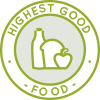 One Community is demonstrating practical highest good through Highest Good food that is more diverse, more nutritious, locally grown and sustainable, and part of our open source botanical garden model to support and share bio-diversity:
One Community is demonstrating practical highest good through Highest Good food that is more diverse, more nutritious, locally grown and sustainable, and part of our open source botanical garden model to support and share bio-diversity:
- Learn about the structures: Hoop House Hub | Aquapini & Walipini Open Source Hub
- See what we’ll be growing: Gardens & Hoop Houses | Large-scale Structures | Food Forest | TA
This week the core team worked on updates to finalize the materials price lists for the Sheep/Goat Barn and started updating the sheet for the Chicken Coop. We also created a material price list for the latest (no-lumber) design of Transition Kitchen.
This week Qiuheng Xu (Landscape Designer) completed her 34th week volunteering, now helping with the Aquapini & Walipini external landscaping details. This week Qiuheng added the floor plan to the Aquapini and Walipini landscape design project.
She sketched some initial design ideas to show the small trees and shrubs layer, big canopy trees and evergreen screen layer, and other draft planting design details. Pictures below are related to this work.
PRACTICAL HIGHEST GOOD – HIGHEST GOOD EDUCATION PROGRESS
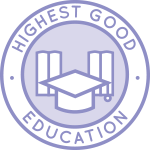 One Community is demonstrating practical highest good through Highest Good education that is for all ages, applicable in any environment, adaptable to individual needs, far exceeds traditional education standards, and more fun for both the teachers and the students.
One Community is demonstrating practical highest good through Highest Good education that is for all ages, applicable in any environment, adaptable to individual needs, far exceeds traditional education standards, and more fun for both the teachers and the students.
This component of One Community is about 95% complete with only the Open Source School Licensing and Ultimate Classroom construction and assembly details remaining to be finished. We’ll report on the final two elements to be finished as we develop them.
With over 8 years of work invested in the process, the sections below are all complete until we move onto the property and continue the development and open sourcing process with teachers and students – a development process that is built directly into the structure of the education program and everything else we’re creating too:
- Program Overview: Education Open Source Hub
- How the components work together: How to use the Education for Life Program
- Lesson Plans for Life – Lesson Plans How-to
- Foundations of Outstanding Leaders, Teachers, and Communicators
- Curriculum for Life
- Teaching Strategies for Life
- Learning Tools and Toys for Life
- Evaluation and Evolution
PRACTICAL HIGHEST GOOD – HIGHEST GOOD SOCIETY PROGRESS
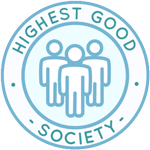 One Community is demonstrating practical highest good through a Highest Good society approach to living that is founded on fulfilled living, the study of meeting human needs, Community, and making a difference in the world:
One Community is demonstrating practical highest good through a Highest Good society approach to living that is founded on fulfilled living, the study of meeting human needs, Community, and making a difference in the world:
- Read the Highest Good society overview: Highest Good Society
- Learn about the model for fulfilled living and sharing: A Day in the Life
- Learn about the 4 economic models: RBE | For-profit | Non-profit | Entrepreneurship
- Learn about our open source community collaboration and management software: The Highest Good Network
This week the core team completed 27 hours managing One Community emails, social media accounts, interviewing potential new volunteer team members, and managing volunteer-work review and collaboration not mentioned elsewhere here.
The core team also helped launch the Beta version of the Highest Good Network software and set up and started populating the bug tracking document.
The core team also updated the intro video for blogs with a new image for the City Center section and new video for the Education section.

Practical Highest Good ” Updated Intro Video for Blogs with New Images – Click for Most Current Blog
TEKtalent Inc. (a custom programming solutions company) also continued with their 42nd week helping with the Highest Good Network software. This week Nithesh and the TEK Talent team worked on the beta testing and bug fixes.
They fixed an issue where the Project/Task list is not populating with all the Projects, and helped fix an issue where TinyMCE wasn’t loading/working properly. Pictures below show some of this work.
Jaime Arango (Graphic Designer) completed his 29th week helping, returning to creating images for the One Community Updates Blogs like this one. This week Jaime created images for weekly progress updates #491, #492, #493, #494, #495 and #496. You can see all these new images below.
Yueru Zhao (Software Engineer) completed her 17th week working on the Highest Good Network software. This week Yueru continued working on making users, classification, priority, status, isActive, assignment options filters working. Now users can choose multiple filters at the same time and the result will render dynamically.
She added the “no filter” option to every filter. If users choose “no filter”, no filter will apply to the result. Yueru also added the “clear all” button. If users click that, all results will show. The pictures below are related to this work.

Practical Highest Good ” Users, Classification, Priority, Status, IsActive, Assignment Options Filters
Robert Pioch (Graphic Designer) completed his 16th week helping with the new badges for the badges section on the Dashboard of the Highest Good Network. Robert prepared the Highest Good Housing and Highest Good Education badge files for use on the Highest Good Software, and completed the Highest Good Stewardship for 1000 hours of volunteer work.
AND WE PRODUCED THIS WEEKLY UPDATES BLOG – CLICK HERE TO SUBSCRIBE
FOLLOW ONE COMMUNITY’S PROGRESS (click icons for our pages)
INVESTOR PAGES
GET INVOLVED
DONATE | WAYS ANYONE CAN HELP | MEMBERSHIP
CLICK HERE FOR ALL PAST UPDATES
 One Community
One Community